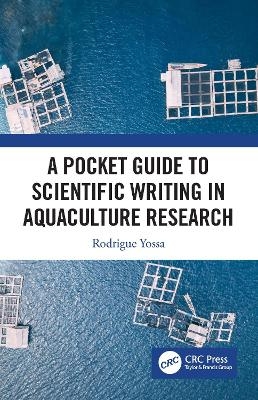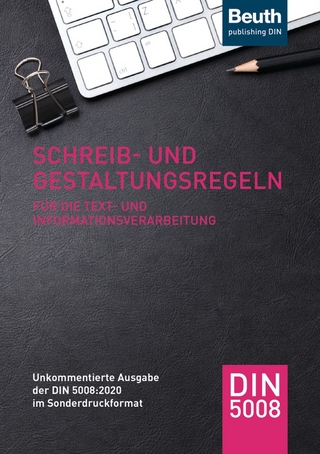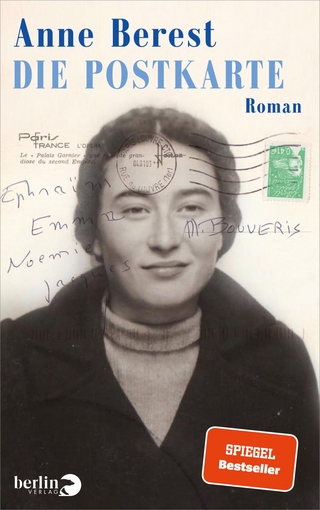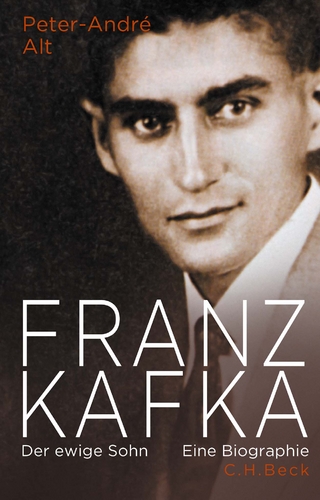
A Pocket Guide to Scientific Writing in Aquaculture Research
CRC Press (Verlag)
978-0-367-33887-9 (ISBN)
Writing for a high-quality scientific aquaculture publication is challenging, and many students and early career aquaculture scientists find the task daunting.
Expanding on his popular workshop on Improving Scientific Writing at the 2017 World Aquaculture conference, Rodrigue Yossa provides new researchers with all the tools they need to write abstracts and a variety of articles (original, research reports, magazines, working papers, conference proceedings and more). He also takes the reader step-by-step through the process of reviewing submitted manuscripts and replying to reviewers, as well as understanding research ethics. Each section is accompanied by examples, and attention is focused on providing advice on grammar, how to focus your paper and possible loopholes when writing.
A Pocket Guide to Scientific Writing in Aquaculture Research offers a lifeline to aquaculture students and early career researchers getting a grasp on the basics of science communication through writing.
Rodrigue Yossa is an Aquaculture Specialist with 18 years of aquaculture research, development and program and project management experiences in North America, Asia and Africa. He is the Editor-in-Chief of the Journal of Applied Aquaculture. He is an aquaculture scientist at WorldFish, which is an international research for development organization member of the One CGIAR system. Prior to joining WorldFish, he was the Scientific Director of Aquaculture Division at the Coastal Zones Research Institute Inc. (now Valores), in New Brunswick, Canada, where he led a team of 12 aquaculture scientists and technicians. He was also an Adjunct Professor at the University of Moncton in Canada, from 2016 to 2019. Rodrigue Yossa is the co-founder of AquExperts International Inc. (www.aquexperts.com), which is a Canada-based international group that provides scientific, professional and technical services in aquaculture, fisheries and management of aquatic resources in Africa. He is a certified Project Management Professional (PMP) from the Project Management Institute. He holds a PhD in animal sciences from Université Laval (Canada), an MSc in aquaculture from Ghent University (Belgium), University Certificates in Biotechnology from Université Laval and in art and philosophy from Ghent University and a BSc in water, forestry and wildlife engineering from University of Dschang (Cameroon). He is fluent in English, French, Bafang language, and Pidgin English spoken in Cameroon, Nigeria, Ghana, Sierra Leone and Liberia. He is also an advocate of sustainable organic farming. He has visited more than 30 countries across the world, for aquaculture research and development purposes.
1. Introduction 2. Principles of Scientific Writing 3. Ethics in Scientific Writing 4. Writing a Peer-Reviewed Original Article from Abstract to Conclusion 5. Manuscript Submission 6. Reviewing a Manuscript for a Peer-Reviewed Journal 7. Preparing Authors’ Responses to Reviewers’ and editors’ Comments 8. Writing a Research Report 9. Writing a Working Paper 10. Writing a Conference Abstract 11. Writing an Article for Conference Proceedings 12. Writing a Technical Article for a Magazine 13. Overview on Managing a Manuscript Writing Project 14. Practical Considerations to Improve Scientific Writing Skills 15. Conclusion.
| Erscheinungsdatum | 19.11.2021 |
|---|---|
| Zusatzinfo | 1 Tables, black and white; 4 Line drawings, black and white; 4 Illustrations, black and white |
| Verlagsort | London |
| Sprache | englisch |
| Maße | 129 x 198 mm |
| Gewicht | 390 g |
| Themenwelt | Geisteswissenschaften ► Sprach- / Literaturwissenschaft ► Literaturwissenschaft |
| Naturwissenschaften ► Geowissenschaften ► Hydrologie / Ozeanografie | |
| Weitere Fachgebiete ► Land- / Forstwirtschaft / Fischerei | |
| ISBN-10 | 0-367-33887-4 / 0367338874 |
| ISBN-13 | 978-0-367-33887-9 / 9780367338879 |
| Zustand | Neuware |
| Haben Sie eine Frage zum Produkt? |
aus dem Bereich


